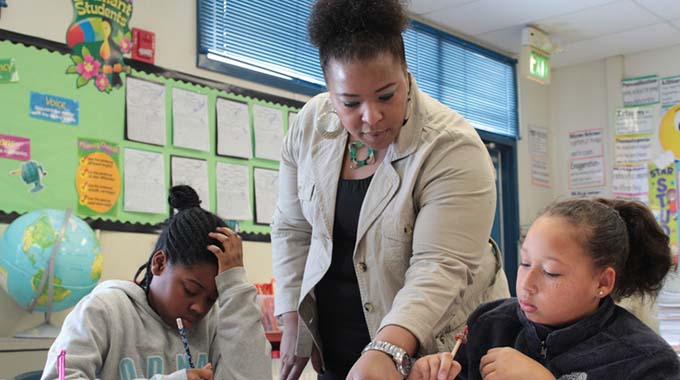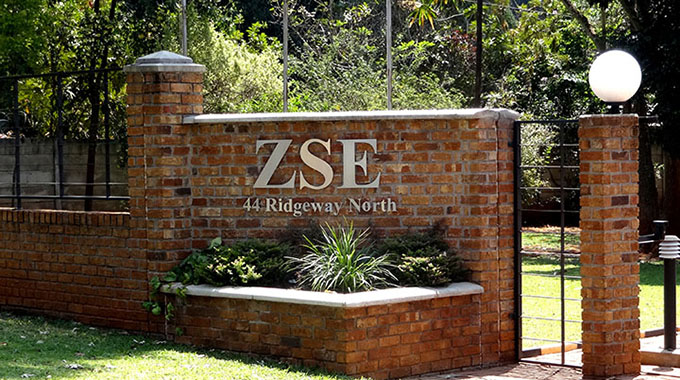On teaching children well

David Mungoshi Shelling the Nuts
Owing to the concerns often expressed by Zimbabweans regarding the new curriculum, I am re-visiting the area of teaching and learning.
The popular Crosby, Stills, Nash and Young song, “Teach Your Children Well”, opens with these lines:
You, who are on the road
Must have a code
That you can live by
And so, become yourself
These words are especially relevant in these days of shifting values and equivocation.
Accordingly, anyone involved with teaching learners during their formative years will do well to take these words to heart.
Teaching is serious business and carries heavy responsibilities with it. It is in this context that Jesus in Matthew 18: 6 is recorded saying:
“But if anyone causes one of these little ones who believe in me to sin, it would be better for him to have a large millstone hung around his neck and to be drowned in the depths of the sea.”
This chilling warning applies to both teachers and parents, the one formal and the other informal.
Guardians can also be included here. Accordingly, the fare we feed our children must serve them well through life and can only do so if those who convey it are motivated by the highest considerations and attach greater value to the good of all as opposed to fronting the whims of individuals.
Teachers must train learners in how to sift information and align themselves only to that which is true regardless.
That something must add value to life. This enables the learners, later in life, to be useful members of society capable of discerning the truth and choosing what is true and essential in terms of norms, morals and values.
Learners must be taught well how to resist being trivialised by people with vested interests.
This year’s World Cup in Russia is providing many sad illustrations of this.
In one social media group I belong to, someone posted the picture of a languid fellow whose caption read:
“Africa let’s just stick to corruption, stealing and killing each other! The football thing is not for us!”
As if Africa has a monopoly of these proclivities! This is the kind of racist drivel against Africans that our traducers love instilling into us by all means possible.
Many of us are willing victims and purveyors of this perverted doctrine.
Rather than forge unholy alliances with debt-collectors, schools should strive to teach skills and lasting values for use in the world.
Anyone in teaching to be fabulously rich is in the wrong place.
Schools tell parents and guardians that they have seven days within which to settle outstanding fees.
Even more interesting is how the deadlines never coincide with pay days.
One gets the sneaking feeling that the deadlines are meant to assure the debt collectors of rich pickings.
It is disturbing to know how schools and some institutions of higher learning churn out endless lists of demands which allow unimaginative members of staff to do unjustifiable things.
Such teachers and lecturers are always planning things that have fringe benefits for themselves.
Never once do they empathise with beleaguered parents and guardians.
Directly and indirectly, learners are taught how to be frivolous, grasping and demanding.
They develop huge egos which in turn make them think they are entitled to anything and everything. The idea of setting priorities flies out through the window.
Who was it that told schools and institutions of higher learning that the people are mines from which they can extract, willy-nilly, whatever they dream up? How about thinking about the other side of things for a change?
What is it that you guys can materially do for yourselves and for the nation?
When days are as dark as they have been in recent times, we must allow ourselves time to recover and budget everything realistically within our means. School heads included! That is what is meant by “Charity begins at home”.
I once taught at a small school in a small mining town. Many of the parents were desperately poor and it showed in their children.
The school reached an arrangement with a local bakery to sell buns in the school on commission five days a week.
At the end of the week quite, a bit of money would have accumulated.
By month-end and by end of term, more money would have come. Proper records of every transaction were kept.
That was how the school’s Commerce Club came about. It was not for the teaching of Commerce as a subject. Rather it was designed to do a specific commercial activity for the benefit of the school, especially the pupils.
Whenever the school had sporting engagements, the Commerce Club fed the competitors. It also paid school fees for needy children.
On one occasion, there was a lightning strike at the school. A boy who happened to be leaning against a wall on the veranda had his shoes, shorts, shirt and blazer scorched. He was lucky to stay alive.
His name was Ramazani Mlonyeni, an affable character and a very capable sprinter and soccer player.
He called himself Rugs Maimodi! I wonder where he is as I write. It’s such a long time ago.
Ramazani needed help getting a new set of uniforms.
And yes, you guessed it! The Commerce Club came to the rescue! His case always makes me feel that schools can do more for the children under their care.
The school’s help at a crucial moment ensured that Ramazani’s dream of bettering himself stayed on course. He was later to graduate from an agricultural college.
At teachers college, I discovered that I needed a lot more than just the pedagogical skills I was guaranteed.
I also learned to value such things as concern for the child and to appreciate the influence of the child’s background on his learning, performance and socialisation.
The College of Christ the King, Daramombe, had no rules except those of common sense.
In practice, we learned a veritable quantity of things: chalkboard writing, media construction for the production of what were commonly known as charts as well as how to scheme for each term’s work on a subject by subject basis and also do the daily lesson plan.
Happily for everyone, we learned how to improvise media from the environment. For example, we scooped clean the inside of a wild fruit known as “damba” in ChiShona and “ikhemeswane” in IsiNdebele.
We then scraped the green colour off the outer surface of the shell and let the shell dry. With time one could construct a globe to supplement the atlas during Geography lessons.
Properly constructed, this globe could be used to illustrate the earth’s rotation and revolution. Now all we do is cry, cry and cry.
Nature corners seem to have disappeared from primary school classrooms.
I have never forgotten the joy and amazement on the faces of my class on seeing the wonder that a black widow spider we had captured the day before had created in our nature corner next morning. She had, overnight, spun a wide expanse of intricate webbing, out of nothing!
Father A John Gardiner, the college principal at Daramombe was a stern white priest and a veteran of World War 2.
He loved to make us rise some mornings and hit the road as if we were at a military barracks.
Despite being a Rhodie sympathiser, he insisted on our independence of thought. He was the kind of man who could differ with you and still defend your right to hold a different opinion.
One of his greatest friends was an old atheist called Mr Tully, who had dozens of cats in his little cottage near a hill.
Strangely, Mr Tully attended mass every Sunday.
In an Educational Psychology examination that Father Gardiner had set, I answered some of the questions using ideas from a book on Ujamaa socialism by Julius Nyerere.
Although I knew he was critical of Nyerere’s ideas, this did not deter him from recognising the depth of my answer.
In that exam I had the highest mark! And guess who had lent me the Nyerere book? Father A John Gardiner, obviously!
During one school vacation, I travelled around the countryside with David Beach, the renowned historian.
We were collecting oral history in the villages. We spent two nights at Daramombe and were guests at Father Gardiner’s table.
He smoked his pipe and played Beethoven music on a prized record player of his. There was beer and he said I could drink if I wanted to. Mr Tully was a silent guest at the table.
James 3: 1 says, “Not many of you should become teachers, my brothers, for you know that we who teach will be judged with greater strictness.”
Today’s teachers are best advised to heed this warning and teach the children well in all respects.
At Daramombe I learned how to live and let live, and how to accommodate competing ideas. These are the challenges of today’s world.








Comments